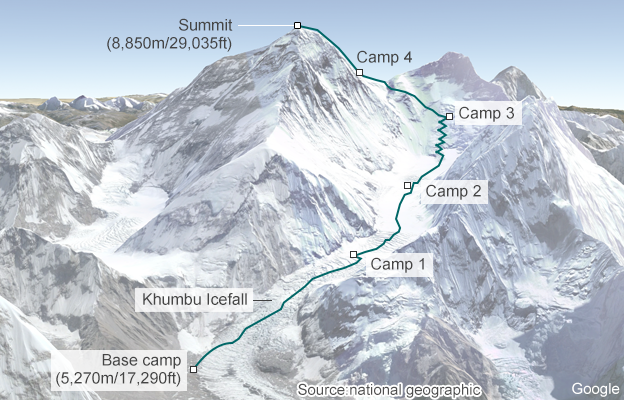Nepal earthquake: Mount Everest climbs 'almost impossible'
- Published
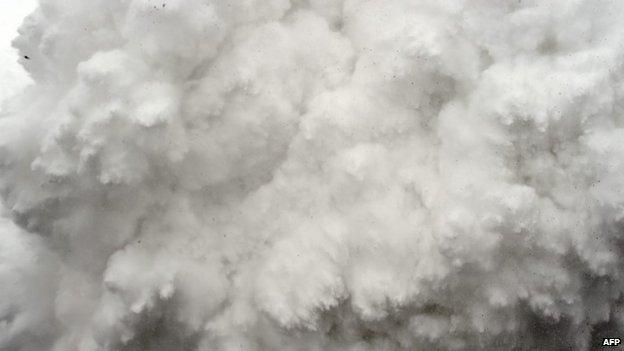
The quake resulted in a terrifying cloud of snow and debris enveloping the Everest Base Camp
Climbing Mount Everest this season is "almost impossible" because the routes have been damaged by avalanches triggered by last month's earthquake, officials in Nepal say.
They warn that it will take time for the routes to be remade. The government has not announced an official decision.
At least 19 people were killed in the avalanches.
The 7.8-magnitude earthquake is now known to have killed more than 7,000 people and injured more than 10,000.
Most climbers have now left the Base Camp and abandoned their expeditions, Sherpa porters based there have told the BBC.
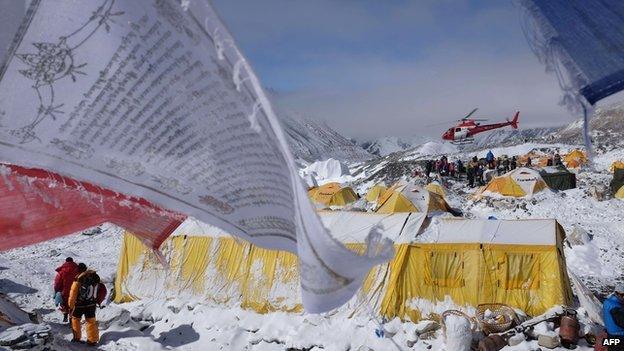
A large rescue operation was put into action on Everest in the aftermath of the quake
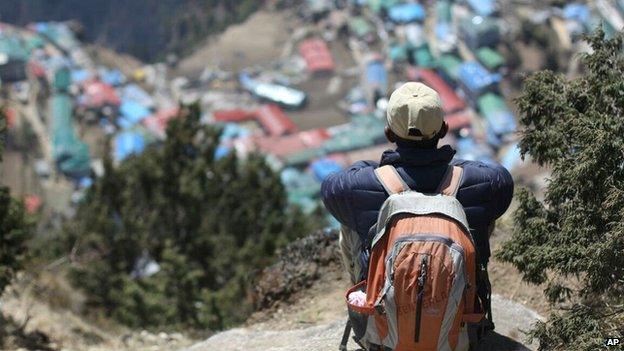
Sherpas want to return to the mountain - but it may not be safe
Officials of the Sagarmatha Pollution Control Committee (SPCC) told the BBC that "icefall doctors" - who are expert rope and ladder-fixing Sherpas - decided that further climbs were impossible this spring after inspecting avalanche-hit areas of the mountain.
The Sherpas say that climbing routes have been badly damaged and in places blocked by huge chunks of ice that were shifted by the quake.
Mountaineering firms - many of whose climbers were killed by the avalanches - have now decided to abandon ascent plans after losing a huge amount of equipment, including scores of climbing ladders, in the snow.
Almost a year ago another avalanche at the world's highest peak claimed the lives of 16 Sherpa guides.

Analysis: Richard Galpin, BBC News, Kathmandu
At the moment the Nepalese government is refusing to officially announce that there will be no more climbing on Everest this year.
It knows it would be an unprecedented move because it would be the second year in a row.
And that could have implications for the country's vital tourism industry of which mountaineering and trekking are major parts.
Those climbers who had wanted to continue their Everest expeditions will be frustrated, while many of the teams will want their permits carried over to next year, which will mean a loss of revenue for the government.
A senior official had also told the BBC earlier that they wanted to normalise the situation in the country as quickly as possible after the earthquake to minimise the damage to the tourism industry.

The government appears to be leaving the decision about scaling Everest to individual climbers - 357 were registered for this climbing season.
The BBC's Sanjoy Majumder has a look at the damage caused to some of Nepal's ancient temples
"The government will not officially announce the closure because we have given the permit to climbers," Tulsi Prasad Gautam of the tourism department told Reuters news agency.
Mr Gautam said on Monday that small tremors were still being felt on Everest.
Some climbers meanwhile have accused the government of dragging its feet over closing Everest to escape having to refund permit fees which can reach as much as $70,000 (£46,200) per climber.
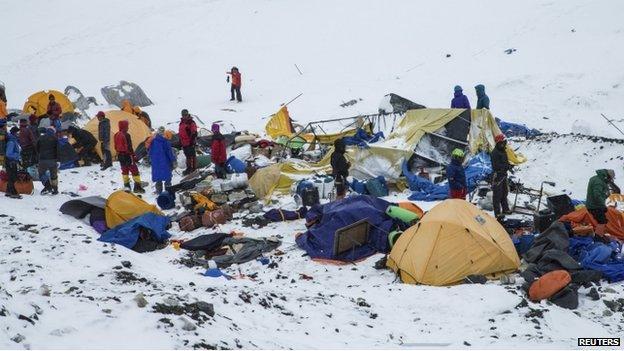
The Everest base camp was destroyed by an avalanche during the recent earthquake
The government says much of the rescue work after the quake is over, and the remaining operations can be handled mostly by local teams.
But it says that it will require huge international support for reconstruction and rehabilitation.
More than 4,000 aid workers from around the world have been helping with relief and rescue operations.
